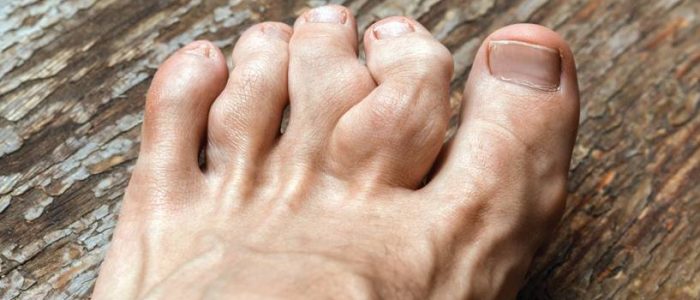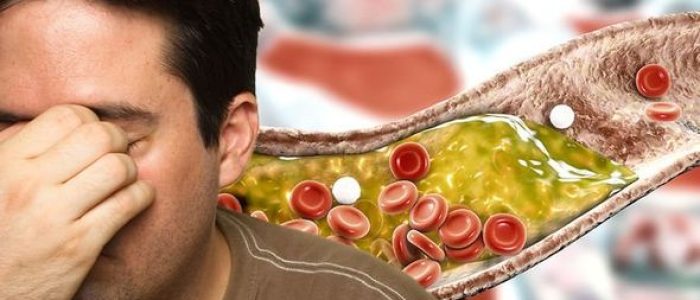Our Treatments
Dr Kashif Diabetes & Endocrine Clinic – Our expert treatments focus on a holistic approach blending modern medical techniques with traditional therapies. We offer personalized plans that include dietary modifications, physical activity, and stress management to address the root causes of these conditions. Our goal is to help patients achieve lasting health improvements and reduce their dependence on medications through safe, effective, and sustainable methods.

Diabetes
Types and Causes:
- Type 1 Diabetes: An autoimmune condition where the immune system attacks insulin-producing cells in the pancreas.
- Type 2 Diabetes: Often linked to genetics, obesity, and an inactive lifestyle, resulting in insulin resistance.
- Gestational Diabetes: Occurs during pregnancy and increases the risk of developing Type 2 diabetes later.
Management:
- Lifestyle Changes: Healthy eating, regular exercise, and weight management.
- Medications: Insulin therapy or other diabetes medications.
- Monitoring: Regular blood sugar monitoring is essential to prevent complications.
Proper management can help control diabetes and prevent serious health issues such as heart disease, nerve damage, and kidney problems.

Diabetic Foot
Diabetic foot problems are common in people with diabetes due to nerve damage (neuropathy) and poor blood circulation. These conditions can cause foot ulcers, infections, and other serious complications.
Causes:
- Nerve Damage: Reduces sensation in the feet, making it difficult to feel injuries.
- Poor Circulation: Slows healing of wounds and increases infection risk.
Prevention and Care:
- Daily Foot Checks: Inspect feet daily for cuts, blisters, or other injuries.
- Proper Footwear: Wear well-fitting shoes to protect the feet.
- Regular Foot Care: Maintain good hygiene and keep feet dry.
- Manage Diabetes: Control blood sugar levels to reduce the risk of complications.
Early detection and proper management are crucial to prevent severe diabetic foot problems, including the risk of amputation.

Polycystic Ovary Syndrome (PCOS)
Polycystic ovary syndrome (PCOS) is a common hormonal disorder affecting women of reproductive age, characterized by:
- Irregular menstrual periods: PCOS can lead to missed or irregular periods due to the ovaries not regularly releasing eggs.
- Excess androgens: Women with PCOS often have elevated levels of androgens, or male hormones, produced by the ovaries.
- Polycystic ovaries: The ovaries may become enlarged and contain multiple small fluid-filled sacs around the eggs.
Other symptoms of PCOS include weight gain (particularly around the abdomen), acne or oily skin, male-pattern baldness or hair thinning, skin tags, dark or thickened skin patches, and pelvic pain. Early diagnosis and support from healthcare professionals can help manage symptoms. PCOS management typically involves a healthy lifestyle and specific medications.

Migraine Headaches
Migraines are intense, recurring headaches that disrupt daily life, typically causing:
- Severe Pain: Throbbing, often on one side of the head.
- Duration: From a few hours to several days.
- Accompanying Symptoms: Nausea, vomiting, and sensitivity to light and sound.
Triggers:
- Stress: Emotional or physical stress.
- Diet: Foods and drinks like caffeine or alcohol.
- Hormonal Changes: Especially in women.
- Environmental Factors: Weather changes, bright lights, strong smells.
Aura:
- Visual Disturbances: Flashing lights or blind spots.
- Sensory Changes: Numbness or tingling.
Management:
- Medication: To relieve symptoms and prevent attacks.
- Lifestyle Adjustments: Avoiding triggers, regular sleep, and stress management.
- Preventive Measures: For frequent migraines, doctors may suggest treatments to reduce attacks.

Hypothyroidism
Hypothyroidism occurs when the thyroid gland fails to produce enough hormones, leading to:
- Fatigue: Unusual tiredness.
- Weight Gain: Unexplained increase in weight.
- Cold Sensitivity: Higher sensitivity to cold.
- Constipation: Difficulty in bowel movements.
- Dry Skin and Hair: Brittle hair and dry skin.
Causes:
- Autoimmune Disorders: Such as Hashimoto’s thyroiditis.
- Medications: Certain drugs affecting thyroid function.
- Radiation Therapy: Impact from cancer treatment.
Diagnosis and Treatment:
- Diagnosis: Blood tests to measure hormone levels.
- Treatment: Thyroid hormone replacement and regular monitoring of hormone levels.
Effective treatment helps manage symptoms and maintain a healthy life.

Dementia
Dementia is a group of symptoms affecting memory, thinking, and social abilities, severely impacting daily life. It’s caused by various diseases that damage the brain, such as Alzheimer’s disease.
Key Points:
- Symptoms: Include memory loss, confusion, difficulty with problem-solving, and changes in behavior.
- Risk Factors: Age, genetics, and certain health conditions can increase risk.
- Prevention: While there’s no cure, managing risk factors like cardiovascular health, maintaining a healthy lifestyle, and staying mentally and socially active may help reduce the risk.
Early diagnosis and support can improve quality of life and aid in managing symptoms effectively.

Fatty Liver
Nonalcoholic fatty liver disease (NAFLD) is a condition where fat accumulates in the liver without alcohol consumption. It can lead to inflammation and liver damage.
Symptoms:
- Often asymptomatic, but may include fatigue, abdominal discomfort, or unexplained weight loss.
Causes:
- Obesity: Excess body weight is a major risk factor.
- Diabetes: High blood sugar levels can contribute.
- High Cholesterol: Elevated levels of fat in the blood.
Management:
- Lifestyle Changes: Weight loss, healthy diet, and regular exercise.
- Medical Monitoring: Regular check-ups to monitor liver health and manage related conditions.

Hyperthyroidism
Hyperthyroidism is a condition where the thyroid gland overproduces hormones, speeding up the body’s metabolism.
Key Points:
- Symptoms: Includes weight loss, rapid heartbeat, sweating, and nervousness.
- Causes: Often due to autoimmune disorders like Graves’ disease, thyroid nodules, or inflammation.
- Management: Typically involves medications, radioactive iodine, or surgery to normalize thyroid hormone levels.

Gout
Gout is a form of arthritis caused by the buildup of uric acid crystals in the joints, leading to sudden, severe pain and swelling.
Symptoms:
- Severe Pain: Often starts in the big toe and may spread to other joints.
- Swelling and Redness: Affected joints become swollen, red, and tender.
Causes:
- High Uric Acid Levels: Excess uric acid in the blood forms crystals in the joints.
- Diet: Foods high in purines, such as red meat and seafood, can increase uric acid.
- Alcohol: Excessive alcohol consumption can contribute to gout.
Management:
- Medications: To reduce pain and lower uric acid levels.
- Lifestyle Changes: Including dietary adjustments and weight management.

Hypertension
Hypertension, or high blood pressure, is a condition where the force of blood against artery walls is consistently too high. It can lead to serious health issues like heart disease and stroke.
Key Points:
- Symptoms: Often has no symptoms, but severe cases may cause headaches or shortness of breath.
- Risk Factors: Includes age, genetics, obesity, lack of physical activity, and high salt intake.
- Prevention and Management: Involves a healthy diet, regular exercise, and medications to control blood pressure and reduce risk of complications.

Osteoporosis
Osteoporosis is a condition where bones become weak and brittle, increasing the risk of fractures. It often develops without symptoms until a bone breaks.
Key Points:
- Symptoms: Usually asymptomatic until a fracture occurs.
- Risk Factors: Includes aging, hormonal changes, genetics, and lifestyle factors like smoking and poor diet.
- Prevention and Management: Focuses on a diet rich in calcium and vitamin D, weight-bearing exercises, and medications to strengthen bones and prevent fractures.

High Cholesterol
High blood cholesterol occurs when there is too much cholesterol in the blood, which can lead to heart disease and stroke.
Key Points:
- Symptoms: Often no symptoms; typically discovered through blood tests.
- Causes: Includes poor diet, lack of exercise, smoking, and genetic factors.
- Management: Involves dietary changes, regular exercise, and medications to lower cholesterol levels and reduce cardiovascular risk.
Get One Step Ahead
Ready to take control of your diabetes? Schedule your online consultation with Dr. Kashif and experience personalized, expert care from the comfort of your home.
Location 1
Shop#13, Bisma Residency, Block 13, Gulistan-e-Johar, Karachi
Time: Mon-Sat (6pm-10pm)
Location 2
Opposite Main Gate Eid Gah, Hospital Road Nawabshah
Time: Sun (12pm-5pm)
Email Us
drkashifansari@gmail.com
info@diabetespakistan.com.pk
